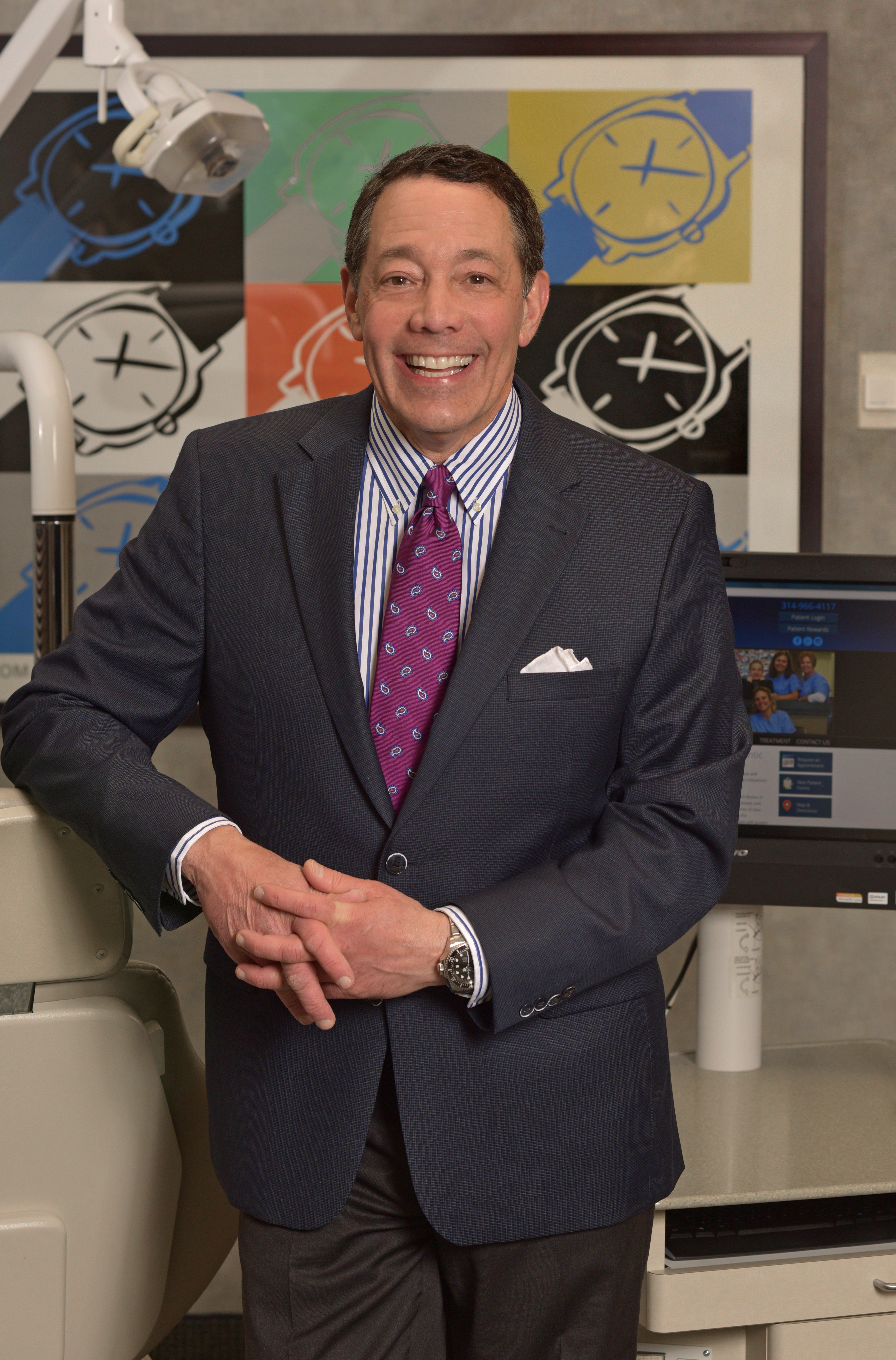Orthodontist Smiles Again After Shoulder Operation Stops Pain

As an orthodontist, Bill Mastorakos has helped countless patients smile.
Bill’s own smile, however, was masking serious discomfort.
Since an athletic injury suffered in his late 20s, Bill’s hard-charging approach to work and sports clashed with severe, right shoulder problems. For decades, he did his best to ignore the pain. But when the agony reached an all-time high, Bill turned to the WashU Medicine orthopedic specialists at Barnes-Jewish West County Hospital.
“This has been a truly life-changing event for me,” Bill says.
Bill, 70, loves sports.
The lifelong golfer and tennis player grew up playing football, basketball, and baseball.
When a recreational baseball game before his 30th birthday produced a high fly ball that was dropping fast, Bill charged hard to make the catch. So did one of his teammates. The two outfielders collided, and Bill flipped head over heels and slammed his right shoulder into the grass with a crunch.
“I knew there was something seriously wrong,” he says. “It was months before I could throw again. Then I couldn’t throw at all. As years went by, it got worse and worse.”
Bill ducked and dodged the pain and discomfort caused by increasing arthritis and decreasing shoulder mobility.
He learned to shift how he reached for objects in his office if a certain position caused jolts of pain. He figured out how to reset his shoulder when it popped out of place on the golf course, easing it back into its socket between swings. He got by—by gritting his teeth.
“I thought I could deal with it, live with it,” he says.
Then things got even worse.
About three years ago, Bill’s bad shoulder started costing him sleep.
“Everything hurt, no matter how I would position myself in bed,” he says. “I’d be crying in the middle of the night because the pain was so excruciating.”
Bill’s wife, Christa, intervened. She reminded her husband that he wasn’t the only one tossing and turning. She was losing sleep along with him.
“For your benefit—and mine—can we please get this taken care of?” Christa told Bill.
Bill agreed. He needed help. But he wasn’t willing to go just anywhere.
Bill’s patients come to his office knowing he has more than 40 years of experience as a practicing orthodontist, along with more than 30 years of experience teaching orthodontic students.
When he committed to finding a shoulder solution, he wasn’t shy about setting high standards.
After asking his peers for recommendations, one name jumped out to him: Alexander Aleem, MD, a WashU Medicine orthopedic surgeon at Barnes-Jewish West County Hospital.
“I am a big proponent of people who are devotees of excellence in their chosen field,” Bill says. “I like people who approach their job with diligence and intensity for their desire to achieve the best they can possibly achieve, who try to be excellent in all they do. I love people who care enough to be the best. I was lucky enough to find someone I instantly had confidence in.”
Dr. Aleem told Bill that an advanced surgical option called reverse shoulder arthroplasty would be better for his condition than a traditional shoulder replacement due to damage done by years of injury and arthritis with significant loss of bone in the socket to his joint.
By reversing the normal ball-and-socket structure in this type of shoulder replacement, orthopedic surgeons aim to improve joint function and reduce pain compared to relying on damaged tendons and severely worn bone to operate the repaired joint’s artificial hardware following surgery.
“I was going in with some trepidation,” Bill says. “I figured I may not be able to do some things I like after the surgery. I was holding my breath and keeping my fingers crossed about golf.”
In April 2022, Dr. Aleem performed the operation at Barnes-Jewish West County Hospital.
A rigorous three-month physical therapy schedule followed. Bill charged into it with the same intensity he once chased a falling fly ball—this time with far better results.
“I put my nose to the grindstone,” he says.
Bill recently celebrated the three-year anniversary of his operation.
His right shoulder, he tells Dr. Aleem during visits, feels better than pretty much everything else in his body. His full range of motion has returned. He sleeps well. His pain? It’s gone.
During a recent lunch break, he drove to his golf club’s driving range and hit, and hit, and hit.
“Not one hint of pain,” he says. “My shoulder is like it was when I was in my early 20s. It’s been great. I can’t say enough.”
Schedule an appointment with a WashU Medicine orthopedic specialist.
- Patient Story